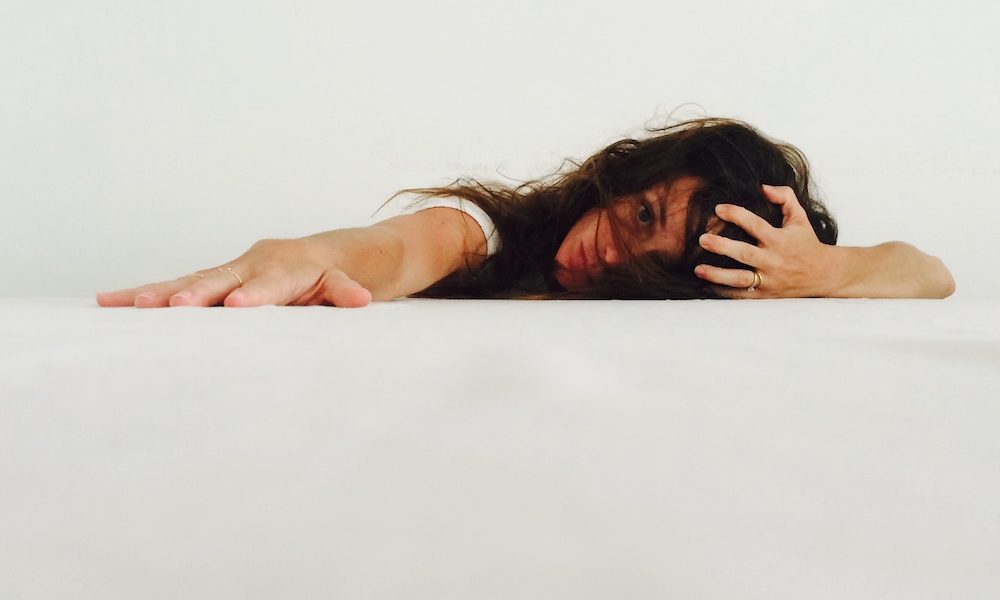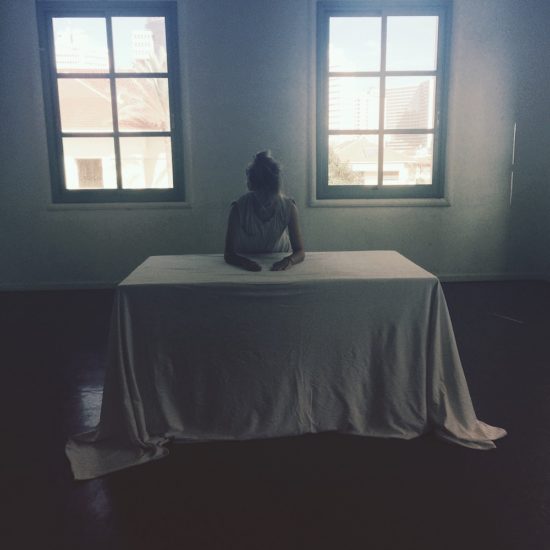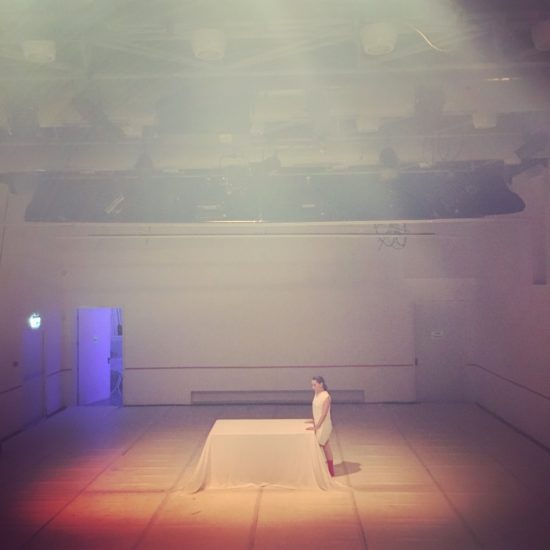Why My Daughter Doesn’t Come to See Me Perform by Ori Lenkinski

*Originally published in Hebrew in Haaretz
Before I had children, I was sure that the moment I got pregnant would be the unquestionable end of my career as a dancer.
It wasn’t.
In fact, having a baby made me want to dance more. I wanted to reconnect with the thing that had identified me for as long as I could remember. I wanted to feel like “me” again, and dancing was the best way I knew how to do that. I imagined that once she was big enough, my daughter would tag along to the studio and the theater. That she would grow up surrounded by music and performance. A handful of my colleagues regularly posted pictures of themselves on Facebook at the barre with a baby in a carrier or sitting in the theater with a stroller at their side. I had seen parents with kids in tow at festivals all over the world.
But that didn’t happen for us.
I did go back to dancing (a little later than I expected) but my daughter didn’t come along. I didn’t do pirouettes with her strapped to my chest and I left her with her father when I went to rehearsal.
She’s six now and has never been to a performance of mine.
At one point, when she was around two, I made a duet. It was created as a site-specific piece for a small studio in the Suzanne Dellal Center and included a large table. My co-creator had two small children so we arranged a family performance before the premiere. It was a complete disaster. Her younger child stood directly next to her and wouldn’t move out of her way, even when the choreography required it, while my daughter screamed “Mama” from the audience, red-faced and stretching her arms out in my direction. We made it halfway through the 16-minute piece before calling it quits.

We never really discussed what happened in those eight minutes and why it was so unsettling for my daughter to watch me run that piece. (A few days later one of her teachers said, “I heard you saw your mommy dancing! What did it look like?” to which she responded, “It looked like a table.”) What I gathered from seeing her experience this was the following: my daughter is used to seeing me perform a very specific role, that of her mother. It is a private show with all-time access to her alone. Seeing me in a different role, one which I was performing for a group of people and one that blocked her access to me almost entirely evoked discomfort and jealousy. In short, the fourth wall was deeply felt by her. By us both.
Recently, while interviewing a famous opera singer, the topic of kids and performance came up. She told me that, for her, opera and her child were two separate universes. She never opened her sheet music at home. Her daughter never came to see her perform. Connecting between those two parts of herself felt impossible, inappropriate.
“When I’m at home, I’m at home,” she said. “If I’m with my child, I’m playing with her. I’m in the kitchen. I’m a mother. When I’m at work, I work.”
Something about the mutual exclusivity of her approach resonated with me, something akin to Clark Kent and Superman (I won’t say which is which though I’m inclined to believe that no role requires more super skills than parenting).
As a mother, I try to be as present as possible. I am for my children, attentive to their needs and desires. When I dance, I am for myself. I am fully present in my body, with the music, with my fellow performers. That is what I love about performance; how it demands my full presence and erases everything else. The stage creates an energetic vacuum and I revel in being sucked into it.

In my fantasy, I am able to marry these two parts of myself. I am also able to keep a spick-and-span home with empty laundry baskets and the smell of baked goods wafting from the oven at all times. In reality, sanity requires me to maintain the divide.
To bring the two together would mean not being able to be fully present in either. And maybe it’s my all-or-nothing tendencies but I feel that splitting my attention in that way would be exquisitely torturous.
For the time being, my daughter and I have come to an unspoken understanding that keeps her out of the theater. It seems to me that she recognizes the nature of my work on stage and appreciates its importance but prefers not to cope with witnessing me as a completely separate being from herself. I believe that the fantasy that she will one day occupy a front row seat exists for both of us and is getting incrementally closer as time passes but, for now, we agree to let our world and my professional world exist in parallel.
